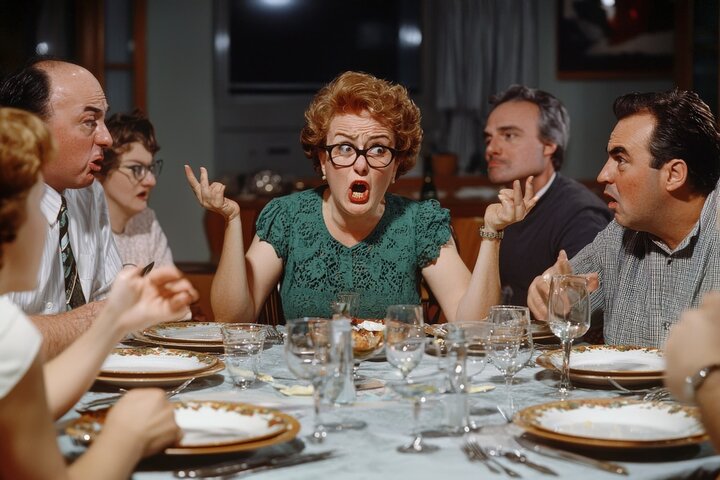The Power of Good Manners
Do you ever wonder why people avoid you or seem cold?
Do you miss out on success opportunities, despite your skills?
Do you leave conversations feeling like something went wrong, but you’re not sure why?
These might not be random problems.
They could be signs of bad manners. They might be quietly working against your success.
10 Warning Signs That You Have Bad Manners
Like bad breath, your bad manners can hurt your relationships without you realizing it.
- You get left out of plans, meetings or group activities.
- Conversations feel tense or awkward.
- You frequently feel argumentative.
- People seem to pull away from you. For example, they don’t return your messages.
- It seems like you have to work harder than others to get help or earn trust.
- People avoid eye contact with you, or like to end conversations.
- You hear little comments like, “You’re being difficult, Joe” or “Maybe you can be a little nicer.”
- People do not thank you or give you compliments.
- People act guarded or cautious around you.
- You seem to get fewer chances, referrals, or second chances than others.
In most cases, your bad manners are not caused by evil intentions, but from a lack of knowledge. You don’t realize how important good manners are to your success!
The Power of Good Manners
Do you ever wonder why people avoid you or seem cold?
Do you miss out on success opportunities, despite your skills?
Do you leave conversations feeling like something went wrong, but you’re not sure why?
These might not be random problems.
They could be signs of bad manners. They might be quietly working against your success.
10 Warning Signs That You Have Bad Manners
Like bad breath, your bad manners can hurt your relationships without you realizing it.
- You get left out of plans, meetings or group activities.
- Conversations feel tense or awkward.
- You frequently feel argumentative.
- People seem to pull away from you. For example, they don’t return your messages.
- It seems like you have to work harder than others to get help or earn trust.
- People avoid eye contact with you, or like to end conversations.
- You hear little comments like, “You’re being difficult, Joe” or “Maybe you can be a little nicer.”
- People do not thank you or give you compliments.
- People act guarded or cautious around you.
- You seem to get fewer chances, referrals, or second chances than others.
In most cases, your bad manners are not caused by evil intentions, but from a lack of knowledge. You don’t realize how important good manners are to your success!
Good News!
Upgrading your manners to a professional level is easy! It’s a skill you can instantly and constantly improve.
When you do, your relationships improve, people treat you better and success comes more easily. In fact, you can even use the power of manners to solve relationship problems.
“Manners are the lubrication that ease the frictions of social contacts.” — L. Ron Hubbard
5 Relationship Frictions That Are Lubricated by Good Manners
Friction #1: VIP Surprises
A huge opportunity falls into your lap, like you meet a brilliant scientist or a billionaire executive. Instead of getting nervous and saying something stupid, you simply use your best manners. The VIP relaxes and you both enjoy an interesting conversation.
Friction #2: Instant Dislike
Someone dislikes you. This type of friction is painful, but if you use the 20 manner habits below, you can get the person to eventually talk to you and start to like you.
Friction #3: Disagreements
You work with a person who has strong opinions about politics, religion, race, sex and so on. If you argue with this person about these views, the friction can ruin the relationship. However, if you use excellent manners with this person, you avoid the friction.
Friction #4: Negative Emotions
When people are upset or angry, and take it out on you, you lubricate the friction of the situation with your best manners. They soon calm down and act rationally.
Friction #5: Persuasion
If you need to sell something or change a person’s mind, you first earn their cooperation and respect with your professional level of manners. They feel safe with you and more open to work with you.
20 Good Manner Habits
Adopt all 20 of these habits to have better manners than most human beings.
1. Automatically be polite to everyone, including strangers.
Good manners lead to opportunities. Being polite to receptionists, restaurant workers, fellow travelers and coworkers makes a big difference in how you’re treated back.
2. Use the “magic words” often.
Words like “Hello,” “Please,” “Excuse me,” “Sorry,” and “Thank you” are powerful. Use them constantly.
3. Use manners in all communications.
- Quickly reply to calls, texts and emails within a day.
- Don’t swear or use vulgar language.
- If someone is rude, don’t respond with more rudeness.
- Make sure people are ready to listen before you start talking.
4. Be generous with your kindness, praise and cash.
When someone helps you or gives you good service, reward their good work with kind words or a good tip.
5. Drive with courtesy.
Rushing through traffic or cutting others off gains you little and can upset people. Drive calmly and you arrive in a better mood.
6. Practice good personal habits.
Don’t pick your teeth, blow your nose loudly or do anything messy in front of others. And never smoke near someone who doesn’t smoke.
7. Show your appreciation.
“Thanks for your time.”
“I appreciate your help.”
“That advice really helped me.”
8. Be on time.
Being late can seem disrespectful or careless. Being early shows you’re responsible and considerate.
9. Use humor the right way.
Clean jokes and funny stories can make people smile. Never joke about race, gender or disabilities.
10. Stay calm and mature.
If someone is rude to you, don’t be offended. Instead be mature and professional, no matter what they do.
11. Give priority to people, not your phone.
Before important conversations, turn off or disable your phone. Even glancing at your phone, while someone is talking to you, is rude.
12. Don’t try to “outdo” others.
If a friend shares a story they’re proud of, never top it with your own. Let them have their moment. Show support instead of competing.
13. Introduce people to each other.
When you’re with two people who haven’t met, make a quick introduction. It shows respect for both and keeps everyone included.
14. Respect personal space.
Good manners include being aware of how close you stand or sit. Giving people space shows emotional intelligence and awareness.
15. Respond with gratitude when someone thanks or compliments you.
Say “You’re welcome,” “It was my pleasure,” or “Thank you.” Shrugging it off or saying, “Ah, that’s nothing” can make the person feel awkward.
16. Offer help when someone needs it.
Holding a door, offering your seat or helping carry something shows thoughtfulness and humility.
17. Respect other people’s time.
Keep meetings and conversations focused. Don’t waste anyone’s time, especially when they’re busy.
18. Speak clearly and at a comfortable volume.
Yelling or mumbling causes strain and confusion. Good manners include helping others understand you easily and comfortably.
19. Apologize sincerely when you’re wrong.
A true apology shows strength and self-awareness. It also repairs trust quickly.
20. Keep shared spaces clean.
Whether it’s a public restroom, office kitchen or family living room, good manners include cleaning up after yourself without being asked.
Learn More
Want to master some advanced communication skills? Check out this free online course.
Bonus Tip
If you observe someone using bad manners, they may not be aware of how they are hurting themselves. Offer to help them by sending them a link to this article.


